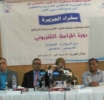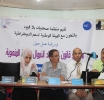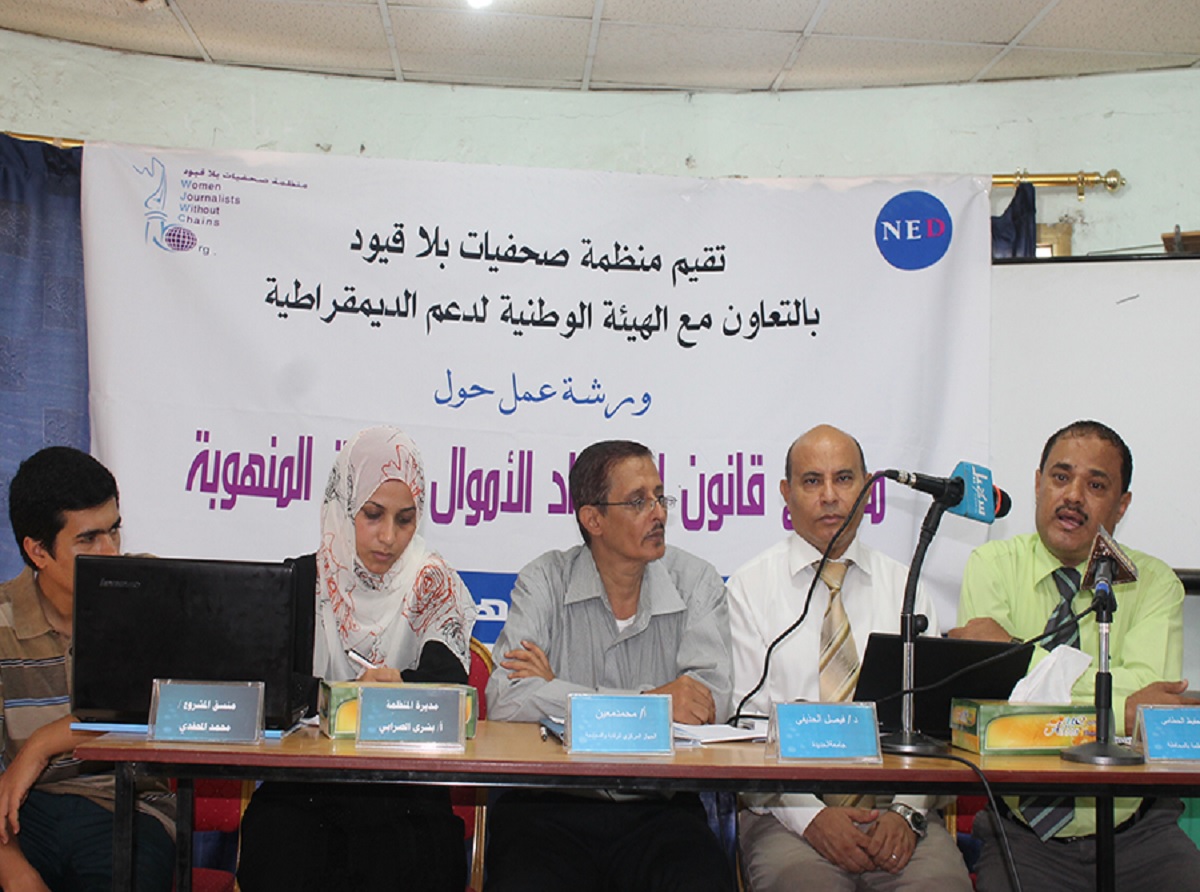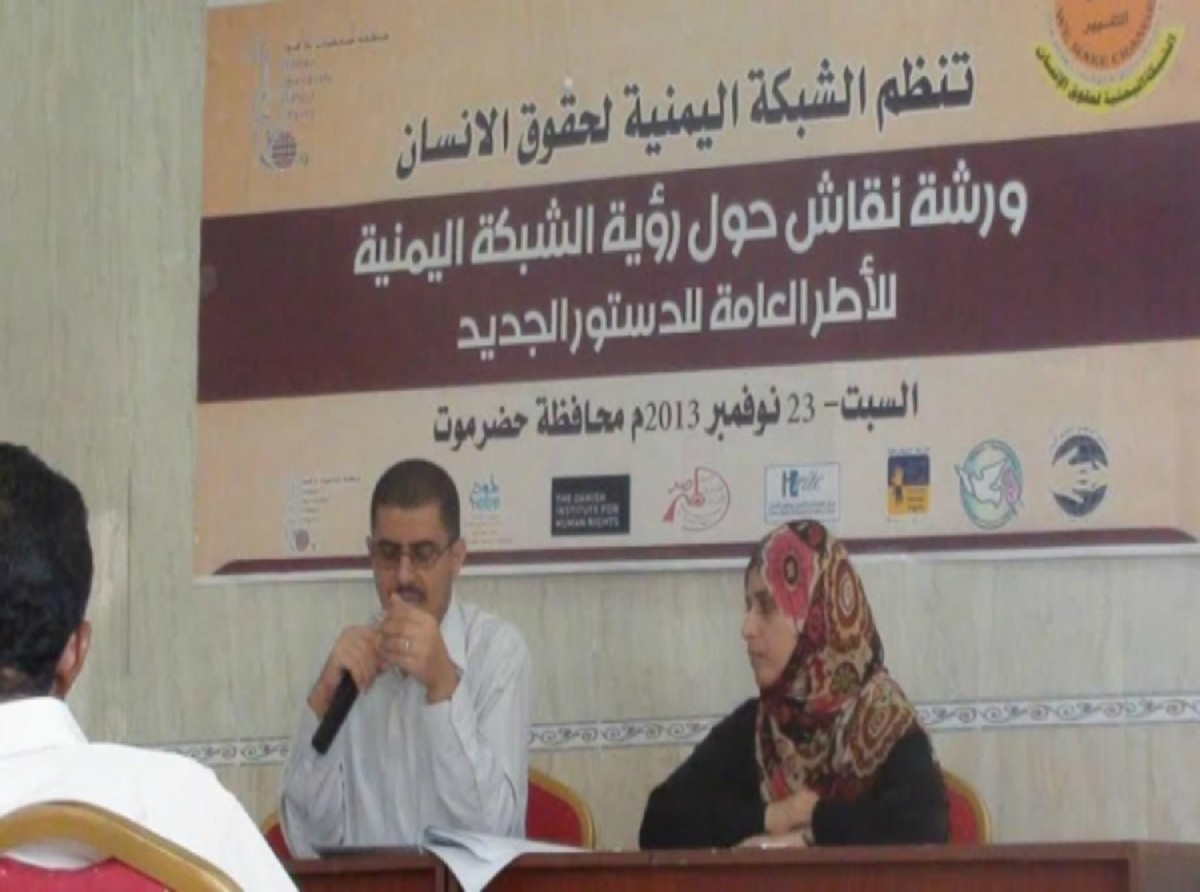WJWC holds panel discussion on corruption fighting, ways to enhance good governance
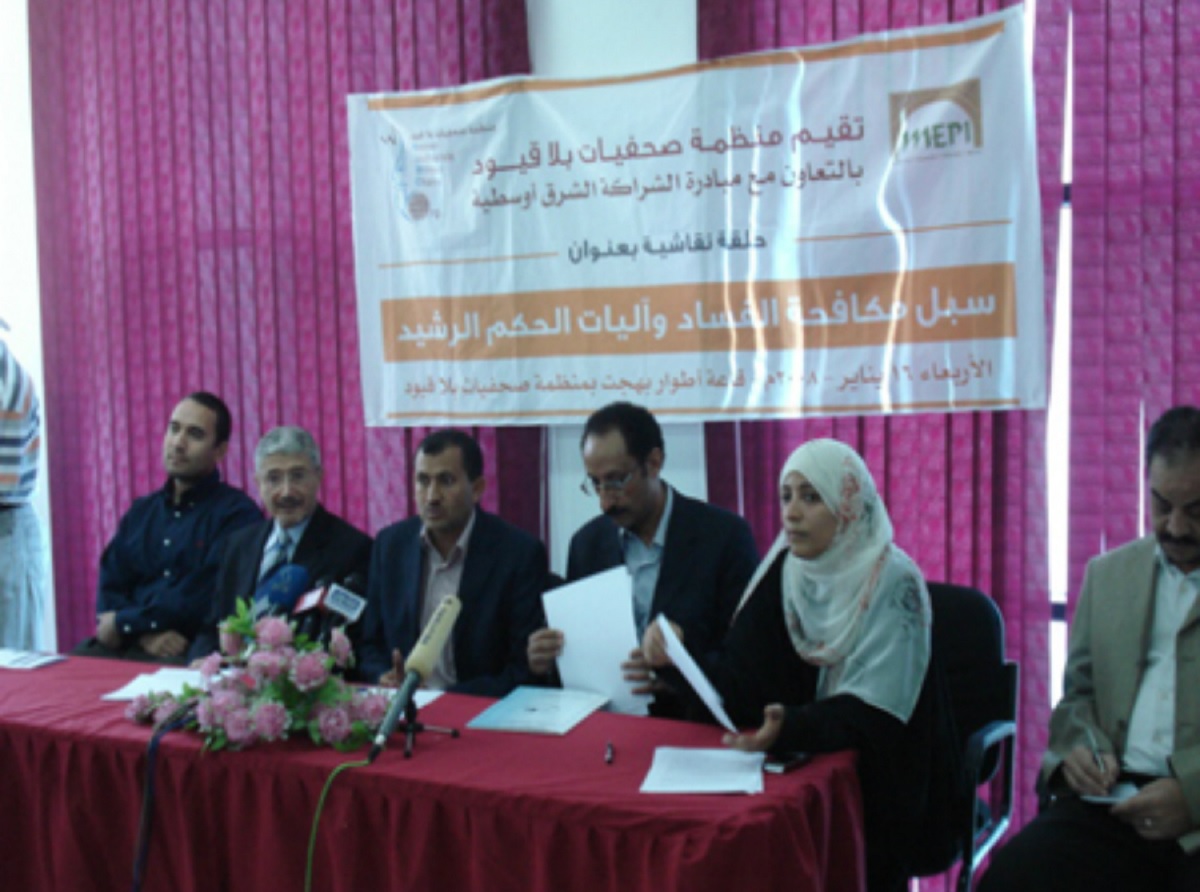
Women Journalists Without Chains (WJWC) together with the Middle East Partnership Initiative have organized a panel discussion on the efforts of corruption efforts and ways of enhancing good governance.
Chairman of the Supreme National Authority for Combating Corruption Ahmed al-Anisi, the international expert on fighting corruption Dr. Majdi Hilmi, the director of fighting corruption program of the United Nation, the chief of Parliamentarians Against Corruption Sakhar al-Wajeeh and the representative of the Yemeni civil society organizations at the Supreme National Authority for Fighting Corruption Ezz al-Deen al-Asbahi attended the panel discussion.
During the panel discussion held at the headquarters of Women Journalists Without Chains, Chairman of SNACC Ahmed al-Anisi stressed the importance of partnership and coordination of efforts with civil society organizations in combating corruption and tasks which the authority was mandated to perform and which are supported locally and internationally.
Al-Anisi said that SNACC in collaboration with Parliament, Judiciary, Press and private sector received thousands of notifications on administrative and financial corruption issues.
"SNACC also received complaints and notifications which aimed only to confuse its work. For example, we get a complaint about disagreements between a man and his wife." al-Anisi added.
Al-Anisi said SNACC has no a magic stick, pointing out that SNACC started from scratch and its power ceiling is limited.
" There are complicated issues which is difficult to distinguish. Journalism play roles in revealing corruption issues. This meeting and others are good examples to support SNACC." he added.
During the discussion, a number of journalists raised questions to al-Anisi. They asked him about why SNACC does not work transparently, financial disclosure of senior officials, of Aden's state lands which was prepared by the Higher Education Minister SalehBasurah to President Ali Abdullah Saleh. He was inquired whether the authority has received a copy of it or not, the problem of looting lands in al-Hudeidah, the scandal of nuclear electricity, Marib power project which was granted to a contractor without a tender. Al-Anisi were also asked other questions.
He said that SNACC implements the law which conditioned confidentiality. He also said that SNACC had not received the report on the land of Aden and other southern governorates.
He said that many voices had emerged to demand the separation of the south, asserting that he took the oath of office to keep Yemen united and referring that it is impossible to revoke his oath and accept the demands of separation.
He asserted that some demands are notification are legitimate, calling for verifying the accuracy of information.
For his part, Chairman of Parliamentarians Against Corruption (PAC) Sakhar al-Wajeeh said that SNACC has an independent budget, indicating that it can follow up any corruption case published by the press.
"We call you to start probing into big corruption cases which were revealed by COCA" al-Wajeeh added.
Al-Wajeeh presented a working paper in which he spoke about the role of Parliament and civil society organizations, spelling out that the parliament's role is feeble, stressing that it legitimized many issues of corruption.
He further said that some corruption issues were halted but the corrupt officials were not punished, pointing out that the problem of the parliament lies in the overwhelming majority owned by the General People's Congress.
He calls media outlets and journalists to join the organization of Parliamentarians against corruption to reveal ways and methods of corruption.
The member of SNACC Ezz al-Deen al-Asbahi said that corruption spreads, stressing the importance of put an end to corruption and hold the corrupt officials accountable.
He also called for an open a partnership with civil society organizations and change the culture of people towards corruption, referring that people consider the corrupt officials as genus and brave.
Chairwoman of Women Journalists Without Chains (WJWC) Tawkol Karman said at the beginning of the panel discussion that the talk about fighting corruption, and the political and administrative system will stay for media consumption if regulations, mechanisms, descriptions are not spoken about accurately.
Karman said "Discussing the political system will stay ineffective if it does not lead to justice, rule of law and equal opportunities."
"It is currently spoken about the principles and foundations which guarantees the rule of law, partnership, accountability, transparency and good governance." Karman added." However, active, effective and aware public opinion must be created. It should follow up events, reveal corruption issues and deprive corrupt officials of support."
Karman further said that corruption is a complicated issue which infiltrated in all aspects of life, referring that a comprehensive strategy for fighting this phenomenon should be adopted.
"This strategy should include the definition of corruption, its reasons and forms. Then, all reasons of it and its chances and fields must be restricted. Deterrent punishments should be also taken against corruption, and awareness among the society regarding its political, economic and social consequences should be raised." she spelt out.
"For the sake of building up a new Yemen and a better future, let us work together to adopt a democratic system based on power separation and rule of law. All people must be equal before the law which its judgments are applied on all. There must be a system based on transparency, accountability, adoption of an independent and fair justice system, and free of all influences which may weaken its work. The authorities should respect its rules. Let us work together for developing laws on fighting corruption, the law of the financial disclosure statement, the law of fighting corruption and the law of illicit gains, the law of accessing information, making the laws more stringent against bribery, nepotism and exploitation of the public service.
It is worth reclaiming that the panel discussion came on the margin of a training course organized by WJWC in collaboration with MEPE for 30 journalists on investigation journalism and techniques of revealing imbalances.

 En
En  Ar
Ar 